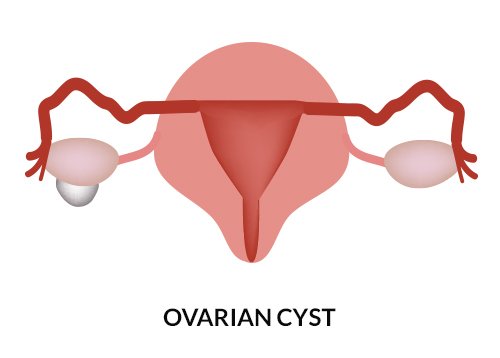Noticing a Stomach Bulge? You May Have Fibroids
- Details
- by: admin
If you are experiencing bloating, unexplained weight gain, or pain in your abdomen, you may be suffering from an enlarged uterus. The uterus is designed to expand from the size of your fist to the size of a watermelon to accommodate a growing baby. However, if your uterus is expanding and you’re not expecting, you need to see your doctor to make a diagnosis. Many times, an enlarged uterus is not a cause for alarm. However, there are some conditions that will need medical intervention.
What Are the Symptoms of an Enlarged Uterus?
The symptoms of an enlarged uterus can vary based on the condition. Sometimes women do not experience any symptoms and an enlarged uterus is only detected by a doctor’s examination. However, some or all of these symptoms may be present:
- Lower Abdominal Pain – Pain in the lower abdomen may indicate an enlarged uterus, but it could also be due to many other conditions.
- Bloating – Because an enlarged uterus may press on the bowels, bloating and excess gas can occur.
- Unexplained weight gain – Sudden weight gain often occurs when there are hormonal changes in the body. If the uterus is enlarged, women may have unexplained weight gain in the waist area.
- Constipation – Due to pressure on the bowels, some women experience constipation when they have an enlarged uterus, although some experience diarrhea instead.
- Headaches – An enlarged uterus has been known to cause or increase the frequency of headaches and migraines.
- Pain – In addition to abdominal pain, an enlarged uterus can cause pelvic pain and.or pain during sex.
- Problems with menstruation – Having an enlarged uterus can cause various problems with menstruation cycles. There may be heavy bleeding, irregular periods, spotting, and menstrual blood clotting. Because of the heavy bleeding, anemia can be a symptom of an enlarged uterus as well, causing fatigue.
- Frequent urination – Pressure on the bladder from an enlarged uterus can cause frequent urination or incontinence issues.
- Pregnancy or conception problems – An enlarged uterus can cause complications in women who are already pregnant, or who are trying to conceive. It can lead to premature labor and miscarriage. For those trying to conceive, it can hamper fertility.
What Are the Causes of an Enlarged Uterus?
An enlarged uterus can be caused by several different conditions, some are benign, but some of them require medical attention. The following are some of the common causes of an enlarged uterus.
Uterine Fibroids

Adenomyosis
Adenomyosis occurs when the tissue that lines the uterus starts to grow into its muscular wall. The cause of adenomyosis isn’t known, but it does usually occur in women over 30 who have had children. It is also more common in women who have previously had uterine surgery, including C-sections. This condition can cause long and heavy periods and progressively more painful periods. Adenomyosis typically occurs after a woman’s childbearing years and doesn’t normally require treatment other than pain medication.
Ovarian Cysts
Ovarian cysts are fluid-filled sacs within or on the surface of the ovary. Usually, ovarian cysts are harmless and cause little or no pain. Many ovarian cysts go away with no treatment within a few months of appearing. However, sometimes they do become serious, causing severe pain – especially if they rupture.
Uterine Cancer
Uterine cancer can cause the uterus to become enlarged. Obviously, this can be a very serious condition that may require a woman to have a hysterectomy to remove the uterus. In addition to the symptoms listed above, uterine cancer may cause vaginal bleeding that is not associated with a woman’s menstrual cycle.
Most of the time and the enlarged uterus isn’t related to a serious medical problem, and may even go away on its own. It is important to remember that if you have any of the symptoms above, or if any of the causes are prevalent in the women in your family, you should see a doctor and be examined to determine the cause and the best way to proceed. Because an enlarged uterus doesn’t always cause a woman to be symptomatic, it is also important that regular exams and tests are performed as recommended by your doctor.



